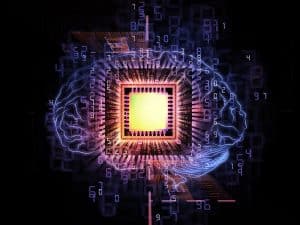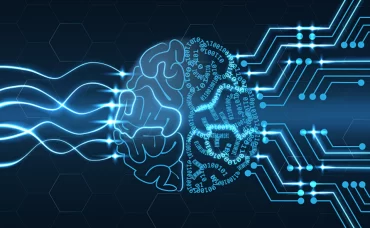
Intel announced the launch of its second generation deep learning processors, which they claim surpass Nvidia’s A100.
Intel’s Habana Labs announced at Intel Vision 2022 the launch of its second-generation deep learning processors for training and inference.
The two processors, named Gaudi2 and Greco, have higher performance and efficiency in comparison to the previous generation, while still using the same process node and die size.
SEE ALSO: AIOps 2.0: Making Actionable Intelligence Actually Actionable
In the announcement, Intel showed that in testing, the Gaudi2 delivered twice the training throughput as the Nvidia A100-80GB GPU, which is the flagpole processor for AI-related tasks.
“Compared with the A100 GPU, implemented in the same process node and roughly the same die size, Gaudi2 delivers clear leadership training performance as demonstrated with apples-to-apples comparison on key workloads,” said Eitan Medina, chief operating officer at Habana Labs. “This deep-learning acceleration architecture is fundamentally more efficient and backed with a strong roadmap.”
Intel claims that Gaudi2 delivers up to 40 percent better price performance in the AWS cloud EC2 DL1 instances, when combined with the Supermicro Gaudi Training Server. This improved performance comes from Intel’s 7-nanometer technology (previous generation used 16-nm) and Habana Labs high-efficiency architecture, along with an integrated media processing engine and triple memory capacity.
“The launch of Habana’s new deep learning processors is a prime example of Intel executing on its AI strategy to give customers a wide array of solution choices – from cloud to edge – addressing the growing number and complex nature of AI workloads,” said Sandra Rivera, Intel executive vice president and general manager of the Datacenter and AI Group. “Gaudi2 can help Intel customers train increasingly large and complex deep learning workloads with speed and efficiency, and we’re anticipating the inference efficiencies that Greco will bring.”
Alongside improvements to the performance, Habana Labs has also improved training bandwidth on Gaudi2, which enables enterprises to more cost effectively scale and configure the processors to meet specific AI requirements.
Habana Labs offers a SynapseAI software suite as a way for enterprises to easily migrate existing GPU-based models to the Gaudi platform. The platform is optimized for deep learning development, and is supported through Habana’s developer site and its Github page.
“As a world leader in automotive and driving assistance systems, training cutting-edge deep learning models for tasks such as object detection and segmentation that enable vehicles to sense and understand their surroundings is mission-critical to Mobileye business and vision,” said Gaby Hayon, executive vice president of R&D at Mobileye. “As training such models is time-consuming and costly, multiple teams across Mobileye have chosen to use Gaudi-accelerated training machines. Those teams consistently see significant cost savings relative to existing GPU-based instances across model types, enabling them to achieve much better time-to-market for existing models or training much larger and complex models aimed at exploiting the advantages of the Gaudi architecture.”






























